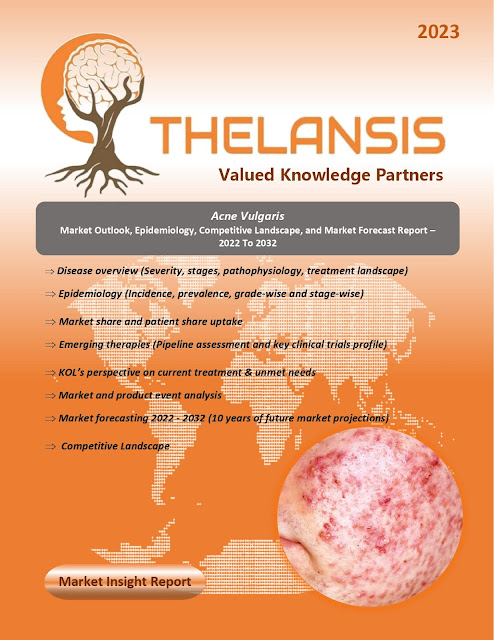Rubella (German Measles) – Market Outlook, Epidemiology, Competitive Landscape, and Market Forecast Report – 2023 To 2033
Rubella virus belongs to the Matonaviridae family, which includes only one genus, Rubivirus. Rubella or German measles is a mild viral infection that affects children and non-immune young adults. It is characterized by low-grade fever, malaise, and swelling of lymph nodes, followed by a brief rash. Rubella is a self-limiting and benign infection in nonpregnant people. However, maternal rubella infection, especially during the first ten weeks of gestation, can result in miscarriage, fetal death, or severe congenital disabilities, collectively known as congenital rubella syndrome (CRS). Postnatal rubella infection is generally mild and resolves independently with a good prognosis. However, infants with congenital rubella syndrome may have a poorer prognosis, depending on the severity and number of organs affected. Infants with thrombocytopenia, hepatosplenomegaly, interstitial pneumonia, and pulmonary hypertension are at higher mortality risk. There's no specific treatment for rubella, but symptoms usually pass within 7 to 10 days.
- The most common complication of rubella infection in adolescents and adult women is the development of joint inflammation and pain, affecting up to 70% of individuals.
Thelansis’s “Rubella (German Measles) Market Outlook, Epidemiology, Competitive Landscape, and Market Forecast Report – 2023 To 2033" covers disease overview, epidemiology, drug utilization, prescription share analysis, competitive landscape, clinical practice, regulatory landscape, patient share, market uptake, market forecast, and key market insights under the potential Rubella (German Measles) treatment modalities options for eight major markets (USA, Germany, France, Italy, Spain, UK, Japan, and China).
KOLs insights of Rubella (German Measles) across 8 MM market from the centre of Excellence/ Public/ Private hospitals participated in the study. Insights around current treatment landscape, epidemiology, clinical characteristics, future treatment paradigm, and Unmet needs.
Rubella (German Measles) Market Forecast Patient Based Forecast Model (MS. Excel Based Automated Dashboard), which Data Inputs with sourcing, Market Event, and Product Event, Country specific Forecast Model, Market uptake and patient share uptake, Attribute Analysis, Analog Analysis, Disease burden, and pricing scenario, Summary, and Insights.
Thelansis Competitive Intelligence (CI) practice has been established based on a deep understanding of the pharma/biotech business environment to provide an optimized support system to all levels of the decision-making process. It enables business leaders in forward-thinking and proactive decision-making. Thelansis supports scientific and commercial teams in seamless CI support by creating an AI/ ML-based technology-driven platform that manages the data flow from primary and secondary sources.




Comments
Post a Comment